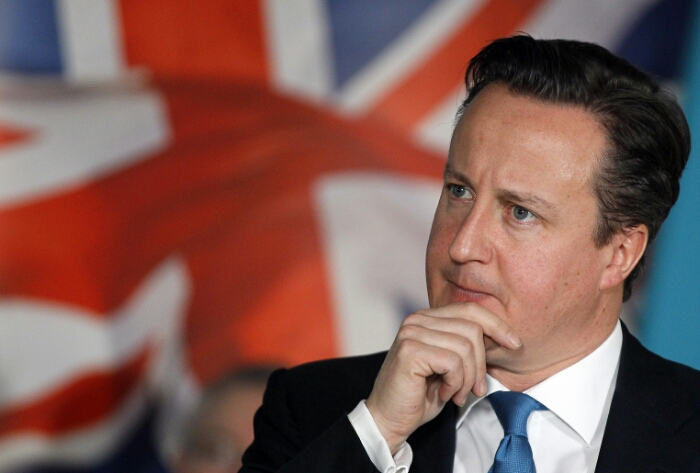Mr Cameron said earlier this month, in an article for the Church Times, that Christians should be “confident” in standing up to defend their values.
The prime minister also spoke of his faith in his Easter message, saying he found “peace” in Christianity.
Referring to a 2011 speech in which he made his comments about Christianity, the Downing Street spokeswoman said: “As the PM set out in his speech to commemorate the 400th anniversary of the King James Bible, the UK is a Christian country and should not be afraid to say so.
This is particularly worrisome, especially after seeing how GWB’s US cabinet was essentially a prayer circle, pushing a fundamentalist-like Christian agenda. We saw how well that went. Fundies, of any flavour, scare me. It’s impossible to have a rational debate with someone whose answer is “because God says so”. When the person using that argument is the leader of the country… I still remember being horrified when Dubya said he was doing God’s work. Now, Cameron is calling himself an agent of God. Don’t get me wrong, I have no issues with his faith. The issues I have are with him using his position and influence to push it into the public eye, where it doesn’t belong.
In a letter to the Telegraph, scientists, authors and academics have voiced their concerns in a, IMHO, well written rebuke to Cameron:
Most Britons are not Christians
SIR – We respect the Prime Minister’s right to his religious beliefs and the fact that they necessarily affect his own life as a politician. However, we object to his characterisation of Britain as a “Christian country” and the negative consequences for politics and society that this engenders.
Apart from in the narrow constitutional sense that we continue to have an established Church, Britain is not a “Christian country”. Repeated surveys, polls and studies show that most of us as individuals are not Christian in our beliefs or our religious identities.
Constantly to claim otherwise fosters alienation and division in our society. Although it is right to recognise the contribution made by many Christians to social action, it is wrong to try to exceptionalise their contribution when it is equalled by British people of different beliefs. This needlessly fuels enervating sectarian debates that are by and large absent from the lives of most British people, who do not want religions or religious identities to be actively prioritised by their elected government.
Professor Jim Al-Khalil
Philip Pullman
Tim Minchin
Dr Simon Singh
Ken Follett
Dr Adam Rutherford
Sir John Sulston
Sir David Smith
Professor Jonathan Glover
Professor Anthony Grayling
Nick Ross
Virginia Ironside
Professor Steven Rose
Natalie Haynes
Peter Tatchell
Professor Raymond Tallis
Dr Iolo ap Gwynn
Stephen Volk
Professor Steve Jones
Sir Terry Pratchett
Dr Evan Harris
Dr Richard Bartle
Sian Berry
C J De Mooi
Professor John A Lee
Professor Richard Norman
Zoe Margolis
Joan Smith
Michael Gore
Derek McAuley
Lorraine Barratt
Dr Susan Blackmore
Dr Harry Stopes-Roe
Sir Geoffrey Bindman QC
Adele Anderson
Dr Helena Cronin
Professor Alice Roberts
Professor Chris French
Sir Tom Blundell
Maureen Duffy
Baroness Whitaker
Lord Avebury
Richard Herring
Martin Rowson
Tony Hawks
Peter Cave
Diane Munday
Professor Norman MacLean
Professor Sir Harold Kroto
Sir Richard Dalton
Sir David Blatherwick
Michael Rubenstein
Polly Toynbee
Lord O’Neill
Dr Simon Singh
Dan Snow


